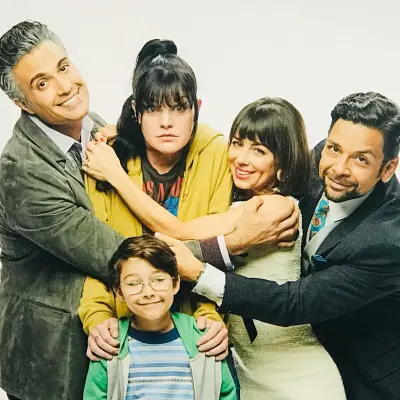Pauly Perrette's CBS comedy Broke couldn't have come at a worse time
-

Even though Broke, which premiered Thursday, is better than NBC's similarly themed Indebted, it's still blind to reality, says Tim Surrette. "Network comedies aiming for mainstream approval must always gloss over actual problems and wrap up episodes with the message that family is more important than money, as Broke's pilot does, but at this moment it has the unintended effect of coming off as disingenuous or like a rich person — say a toilet paper tycoon or a hand sanitizer heir — putting their hand on our knee and saying they know what we're going through," he says. "The polished fairy-tale depiction of poverty that these sitcoms show doesn't exist outside the 42-inch screen we watch it on. Turn your head too far to the left or right and the despair of the real world is right there in a pile of Top Ramen wrappers and overdue bills."
ALSO:
- Broke seems vaguely prescient in the wake of the coronavirus disaster: "I credited Broke as being part of a prescient trend reflecting the fragility of the recent economic bubble and perhaps recognizing in a way too many politicians did not that falling unemployment and soaring stock prices weren't impacting all Americans equally," says Daniel Fienberg. "That's an overstatement. At least Indebted and United We Fall have direct things to say about the costs of American health care and superficial aspects of the American Dream."
- Broke's Natasha Leggero: "People like to see rich people lose their money"
- Pauley Perrette says viewers need Broke is this time of uncertainty: "It's such a weird time for everybody," she says. "I was already so excited about people seeing our show because it's my favorite show I've ever done, so funny, sweet and awesome. But now I'm really excited in a whole other way. I feel people need this right now. It really makes people happy," she says. "When we're in times like these, when your job is specifically to bring people joy, that's a great job."
TOPICS: Broke, CBS, Natasha Leggero, Pauley Perrette, Coronavirus
